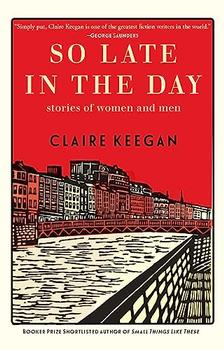Summary | Excerpt | Reviews | Beyond the book | Read-Alikes | Genres & Themes | Author Bio

A Novel
by Caoilinn HughesThe four Flattery sisters have lived apart for many years, each the holder of a doctorate and passionately pursuing her own path. Olwen, the eldest, is a geologist in Galway; her lectures warn of the ruination of Earth's natural resources. Rhona, the second sister, is a political scientist at Trinity College, Dublin, and an advocate of electoral reform. The third sister, Maeve, is a chef, author, and star of social media, living in London and concerned with food shortages in the wake of Brexit. The youngest, Nell, a philosopher and academic, juggles three university jobs in Connecticut on a work visa without health insurance whilst dealing with a condition which has left her with no feeling in her feet.
One stormy night, Olwen leaves her life behind, disappearing without a trace or explanation of any kind. After several months of hearing nothing from her, the other three sisters take time out from their careers to reunite in Ireland and try to find her. Their quest opens up old wounds, issues, and resentments stemming from their past, their present, and the terrible shared tragedy which has blighted their lives…
Unusual, thoughtful, and erudite, The Alternatives is a sprawling and densely packed novel encompassing a broad spectrum of themes: environmentalism, displacement, immigration, integration, interconnection, political upheaval, mental health, social care; also fate, free will, nature, and nurture. The author evokes a vivid sense of place and background for each of the sisters — their temperaments, dispositions, professional interests, social circles, and the general minutiae of their lives. Some readers may find the exhaustive recounting of everyday details in the beginning somewhat cumbersome, in the sense that the story does not move forward significantly until the sisters are reunited. However, the comprehensive introductions and the rumblings in the background of Olwen's disappearance serve to bring them together slowly but surely, and give us deeper insight into their characters, so that when they meet, our knowledge heightens the tensions, unresolved issues, and clash of personalities between them.
For the sisters' reunion, the narrative style changes unexpectedly to the form of a play, with scene-setting and dialogue. This abrupt change works effectively, lending an immediacy and enhanced realism to the initial conversations, reactions, and interactions when they are all together again. Following this, the book travels back and forth from play script to prose, rigorous in its descriptive, down-to-earth detail, while skilfully evincing emotions, memories, plans, and possibilities triggered by the reunion and its subsequent events. The consequences of climate change, and other problems of the modern world, are a constant backdrop to the sisters' converging stories: landslides, storms, floods, gales, power outages, political unrest, ethical compromises, and corporate threats.
At times, an almost fairy-tale quality pervades the story. The sisters' search for wisdom is equated to the tale of King Lir's granddaughter, Sionnan, who sought the Salmon of Knowledge. The Salmon grew angry and caused its river to overflow, drowning Sionnan and turning her into the River Shannon. However, it is the legend of the Children of Lir, one of the Three Sorrows of Ireland in mythology, to which The Alternatives most seems to allude. After the death of their mother, Lir's four children were turned into swans by their jealous stepmother and were to remain so for 900 years — though the spell did not take away their speech or song, which they used to express their human emotions and lament their sad fate. Like the Children of Lir, the Flattery sisters are marked by family tragedy in their youth, by the loss of the happy home they once shared, and by the sorrows and burdens of the world we must all navigate. Albeit meanderingly, the novel chronicles with poignancy their journeys toward recovery, reflexivity, and learning to cope as well as care. As Nell explains:
"Heidegger believed that care is what makes us human, what defines and delimits the species. We're borne [sic] of care, it's an intractable phenomenon of being, our central way of understanding the self. He described two types of care: anxious, burdensome care, stemming from fear and the struggle for survival. And solicitude, which is about lifting up others, being attentive, devotional."
![]() This review was originally published in The BookBrowse Review in May 2024, and has been updated for the
May 2025 edition.
Click here to go to this issue.
This review was originally published in The BookBrowse Review in May 2024, and has been updated for the
May 2025 edition.
Click here to go to this issue.

If you liked The Alternatives, try these:

The End of the World Is a Cul de Sac
by Louise Kennedy
Published 2024
Brilliant, dark stories of women's lives by "a very major talent" (Joseph O'Connor, Irish Times)

by Claire Keegan
Published 2023
From Booker Prize Finalist and bestselling author of "pitch perfect" (Boston Globe) Small Things Like These, comes a triptych of stories about love, lust, betrayal, and the ever-intriguing interchanges between women and men.
Your guide toexceptional books
BookBrowse seeks out and recommends the best in contemporary fiction and nonfiction—books that not only engage and entertain but also deepen our understanding of ourselves and the world around us.